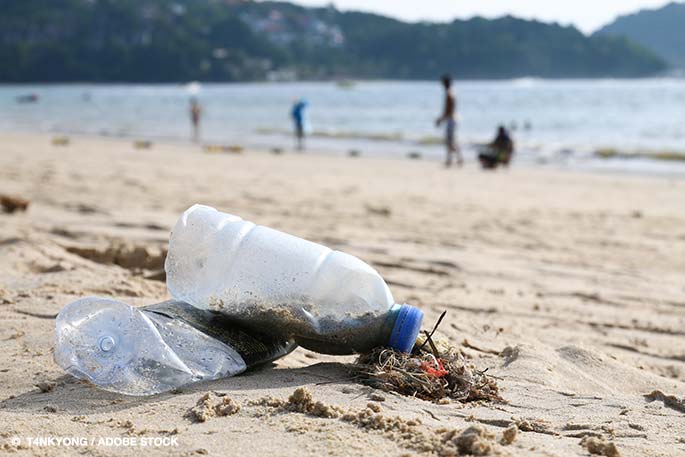
Hurricanes, earthquakes, and political upheaval–these are three reasons why Haiti will sometimes appear in international news. Because tragedy often garners more attention than positivism, some people assume that the country produces little else but bad news. On the contrary! There’s much more going on in the island nation than most of the world knows, and much of it is positive.
One great thing that’s been happening lately is that Haitians have learned to turn their trash into treasure through industry and The Arts.
Recycling Through Industry
Increasingly, Haitians have been partnering with international businesses in pilot recycling programs. Sponsored by several major global brands, these programs empower Haitians to turn recycled waste into fabrics, shoes, and bags that are marketed worldwide.
Not only do Haitians earn wages for their participation, but they also provide an effective avenue for plastic waste to be recycled for the good of both Haiti and the global community.
Recycling Through The Arts
Haitian artists have long been creating sculptures, and mixed-media pieces incorporating plastics and other discarded items picked up from the streets.
I get more inspiration working with recycled materials because those pieces are unique and can’t be duplicated,” says Eugène, a senior member of Artis Rezistans—a community of artists who work solely in the medium of garbage…The artists work with whatever materials they can pick up off the streets: metal, wood, nails, cracked CDs, tires, bottle caps, and dismembered dolls. (Harvard University)
Through this method, the streets of Haiti become cleaner; the artists create pieces that they can sell or show, the world gains more beautiful art, and everyone benefits.
Everyone Benefits
By participating in recycling efforts that involve both industry and The Arts, alert Haitian citizens have begun setting an example for others to follow.
In our areas, in our contexts, we can become aware of the opportunities at hand and actively participate in eliminating plastic waste by reducing its use and recycling what’s left.




































































































































 Three Ways to Engage Teams and Clients to Maximize Your Recycling Program Engagement
Three Ways to Engage Teams and Clients to Maximize Your Recycling Program Engagement  How to Integrate Accessibility Into Your Sustainability Planning
How to Integrate Accessibility Into Your Sustainability Planning  Why Park Benches Can Promote Workplace Well-Being
Why Park Benches Can Promote Workplace Well-Being 
